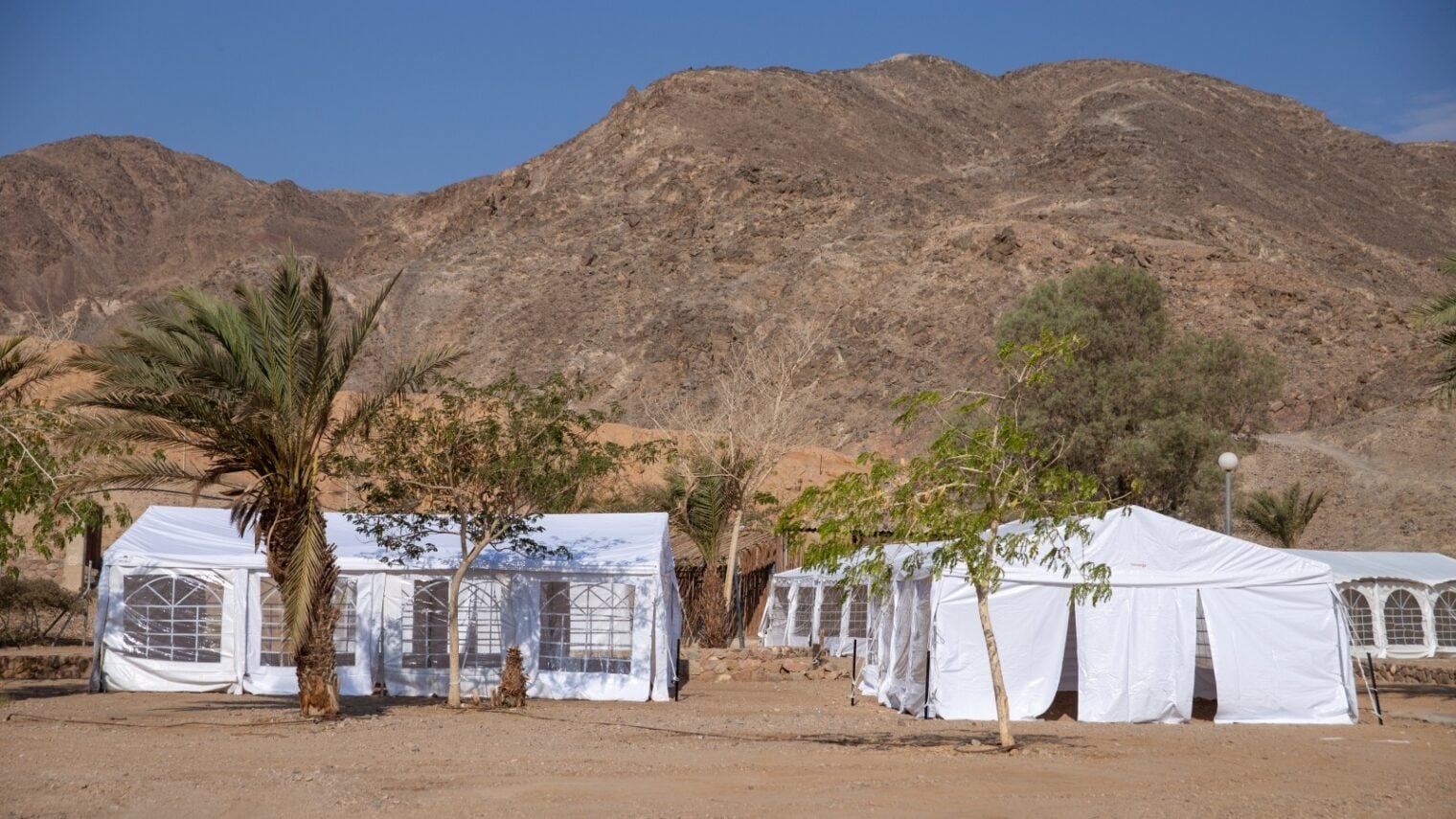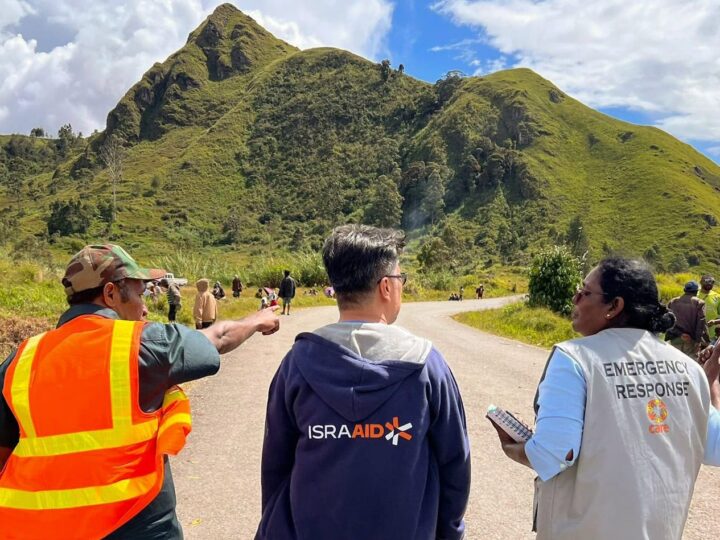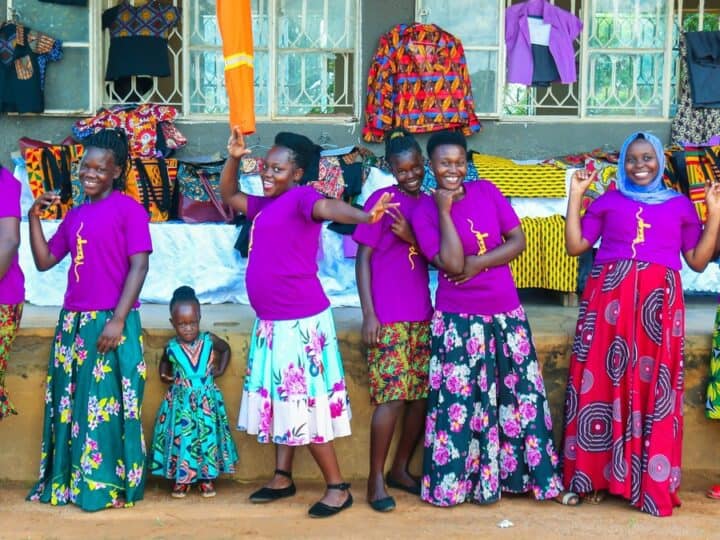Eilat, the Red Sea tourist resort, has doubled its population in the last month.
The hotels are usually full of winter sunseekers at this time of year. They are now a home, of sorts, to 60,000 evacuees from southern Israel.
But this is no vacation for them. They are in deep shock and grief after the October 7 massacre.
Many are mourning relatives, or waiting anxiously for news of family members who were abducted to Gaza.
Some arrived with just the clothes they were wearing. Their homes were looted, then burned to the ground.
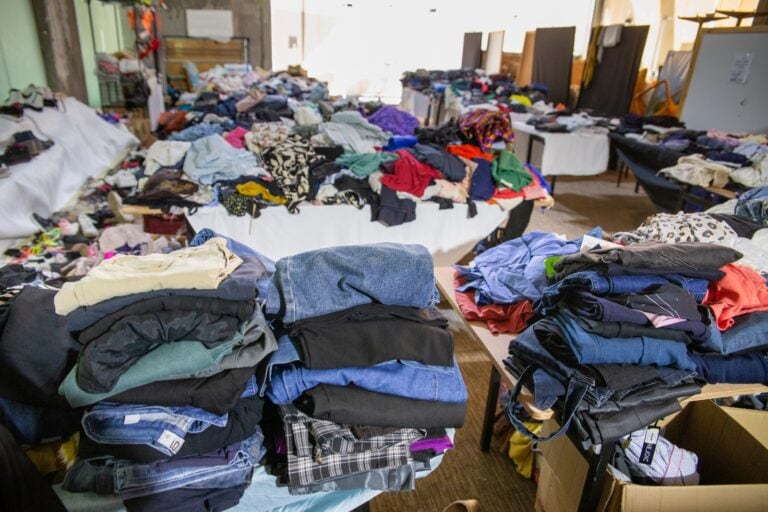
Many remain traumatized by the long hours they spent cowering in their safe rooms, not knowing if they would live or die as Hamas terrorists rampaged outside.
The outdoor pool at the Isrotel Yam Suf hotel looks inviting, but it is empty. One evacuee from Kibbutz Nir Oz, just a little more than a mile from the Gaza border, says nobody wants to swim.

“Not a single person from Nir Oz has been in the pool,” she said to reporters flown down by Media Central to speak with the refugees and those caring for them.
As it happens, they were supposed to have a party on October 7 to mark the last day before the kibbutz pool closed for the winter. But now their heads are in a different place.
The hotel brought in singers and clowns. “But for us it didn’t work,” she said. “It’s too sad.”
That captures the mood across the 40-plus hotels in Eilat currently packed with displaced families.
Terrible times
Many evacuees brought their cats or dogs, a familiar comfort in these terrible times.
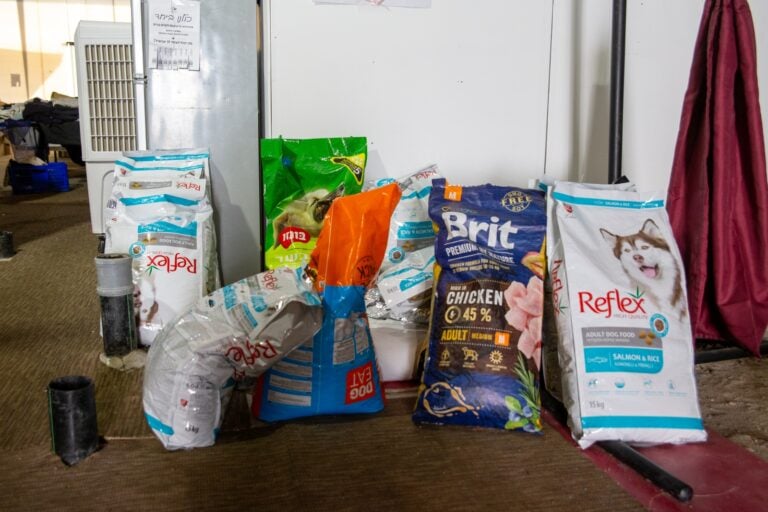
The challenge now is to rebuild lives, both physically and emotionally, in the coming days and in the long term.
The members of Nir Oz have been told it will be two or more years before they can return, if indeed they want to.
Renana Jacob, whose two teenage sons were kidnapped, can’t think about going back.
“Can you imagine bringing your children back to the place they were kidnapped from?” she asked.
“This terror attack will change completely the way that the southern part of Israel is going to be from now on in terms of civilian life. Nir Oz was a beautiful kibbutz; we thought it was heaven and in two hours it turned into hell.”
Forty people were murdered – 11 of them Thai workers – and 79 were kidnapped, including 16 children and a Filipino caregiver.
The plan is to relocate the surviving kibbutz members to apartments in the new neighborhood of Carmei Gat in the southern city of Kiryat Gat, and subsequently to prefabricated homes that better suit their needs.
Doubly betrayed
Kibbutzniks don’t feel at home in hotel rooms or apartments. They yearn for the outdoor life and communal lifestyle.
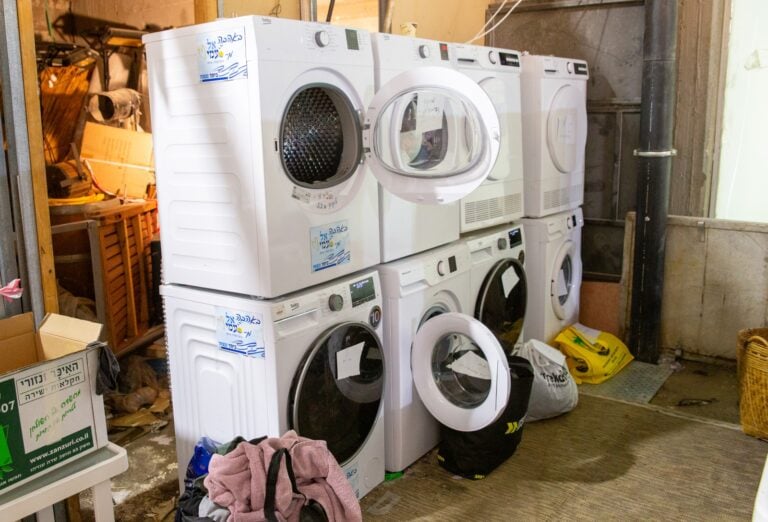
They feel betrayed, both by Israel and by the Palestinians. Israel promised they would be safe, despite their proximity to the Gaza border, but the fence that was supposed to protect them was demolished in a moment.
And many regarded Gazan Palestinians as their friends. They worked alongside them in the fields, they gave them food and clothes, paid their wages, drove them to hospital appointments and believed there was a bond of trust.
They now believe many of those who were granted permission to work in Israel on a daily basis supplied Hamas with the highly detailed information that allowed it to plan the attacks with such devastating consequences.
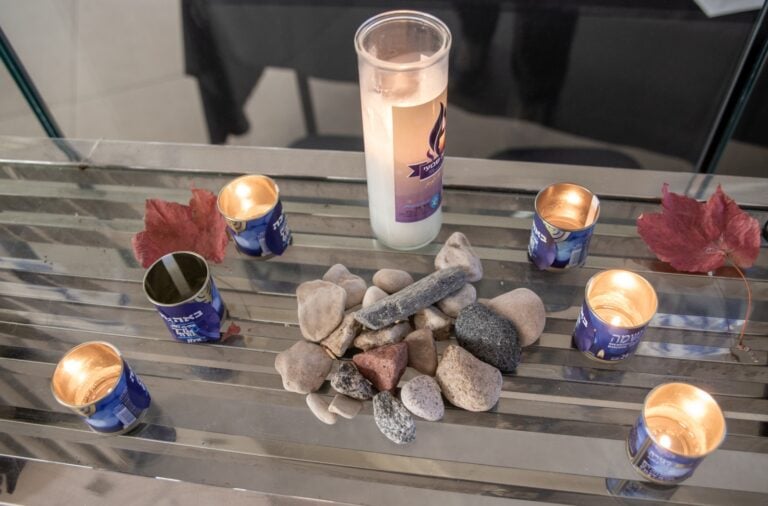
But despite the sorrow and recriminations, despite the candles and remembrance book in the hotel lobby, people are slowly coming to terms with their new reality.
Temporary schools and preschools in the hotels already offer children some sense of routine and purpose.
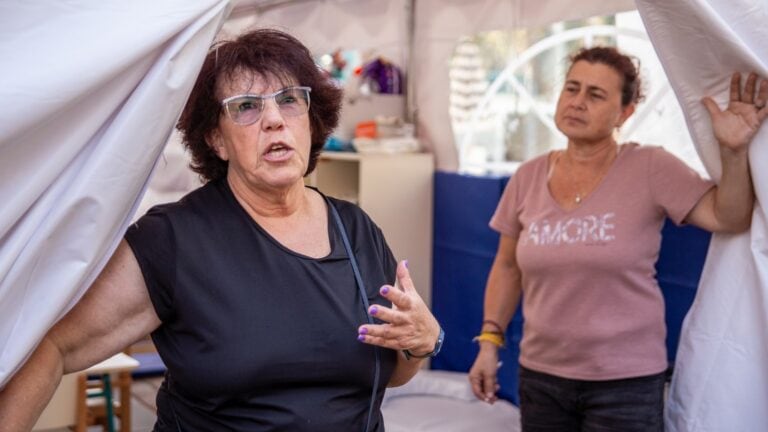
And now, 600 classmates and their teachers from the Nir Oz and Be’eri kibbutzim are being reunited at a school housed in 18 tents.
Historic moment for IsraAID
The tent school is provided by IsraAID, the disaster-relief agency that has, in the last 22 years, provided help and expertise to 62 countries in times of crisis, including the Türkiye-Syria earthquake in March of 2023, Haiti in 2021 and 2010, Indonesia in 2018, Nepal in 2015 and Japan in 2011.
This is an historic moment for the organization: the first time it has been active in Israel.
“Some people ask why is school so important now,” said CEO Yotam Polizer.
“Schools are more crucial than ever to restore some sense of normalcy, some kind of stability, in a very unstable world.”
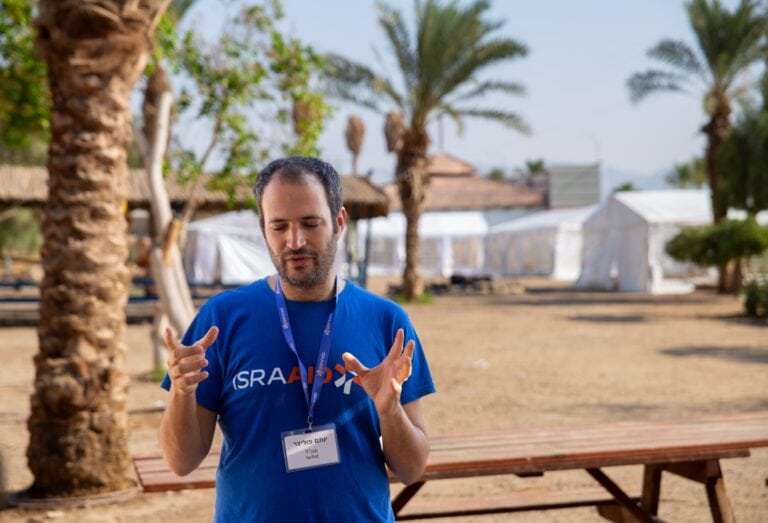
IsraAID has worked in Syria, Afghanistan and Iraq, countries with which Israel has no diplomatic ties.
“For me, one of the most heartbreaking things is to hear the stories from the evacuees here and to compare them to the stories we heard from survivors of the Taliban, or survivors of the Assad regime, or survivors of ISIS,” said Polizer.
“Unfortunately, we have a lot of experience with similar communities. The main humanitarian need we see in the long term is dealing with mental health and trauma.
“We call it generational trauma. We are a disaster-relief organization, but we also understand that the needs will be long term,” he said.
“It’s also unfortunate that the world’s attention and the media moves on very quickly and that’s something we’ve seen in Ukraine, Afghanistan, everywhere. People are abandoned and re-traumatized.”
Processing the horrors
Polizer pledges that IsraAID will support these people for as long as needed.
“PTSD can come after 10 years, after 20 years. We know it’s crucial to provide emotional support from the first moment.”
IsraAID is also providing therapists at four hotels to help both children and adults process the horrors.
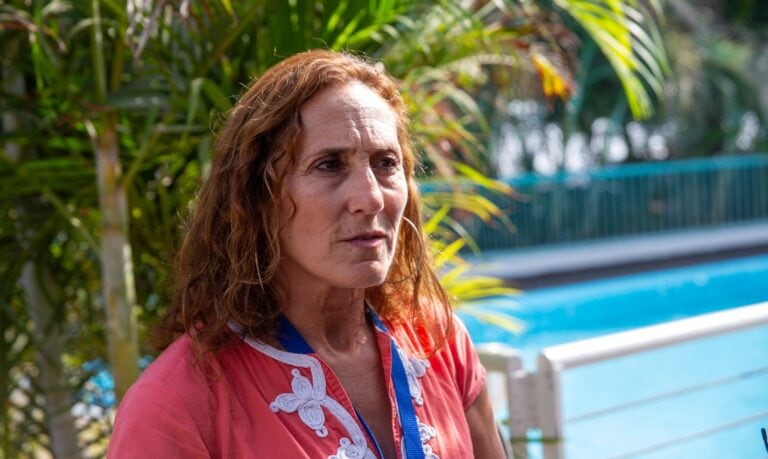
“A lot of parents come in, and they say ‘My child needs help,’” said Debra Kalmanowitz, an art therapist with extensive experience in humanitarian aid.
“We end up sitting in a corner and working with the mother and another therapist ends up with the child.
“A lot of these children, from grade one to six, have a key figure, their counselor who is kidnapped. They all talk about her all the time,” said Kalmanowitz.
“We can’t answer in a positive way even for the children. We can only listen, we can only be there for them. But the advice is not to promise them that she’ll come back, because we don’t know.”
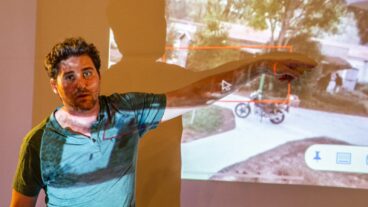
First the terrorists set fire to all the cars at Kibbutz Nir Oz so that nobody could escape. Next they sabotaged the water supply, so they couldn’t put out the flames.
Then, accompanied by women and teenagers, they embarked on their cold, calculated killing and kidnapping spree at Kibbutz Nir Oz.




